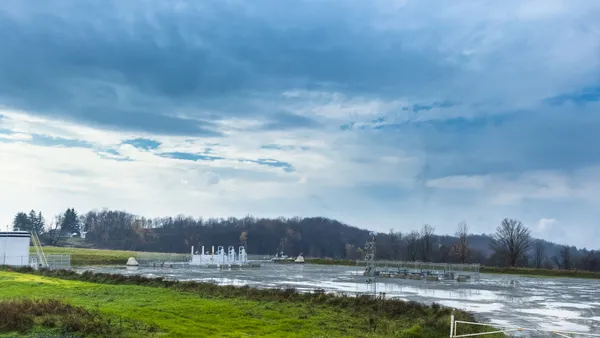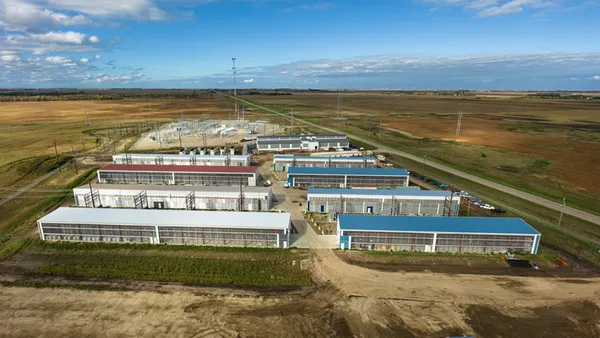Dive Brief:
- Utilities in New York will file “demonstration projects” this week as part of the state's Reforming the Energy Vision (REV), aimed at modernizing the grid and changing the way electricity is generated, supplied and consumed in the state.
- Central Hudson Gas & Electric already proposed a half dozen innovative REV projects along side its recent rate case, and regulators have given a preliminary nod to a demand response initiative that extends through 2019.
- Greentech Media reports Iberdrola and National Grid have given a preliminary view into what they intend to propose, including new efficiency markets, technologies enabling better use of distributed resources, and microgrids.
Dive Insight:
It appears that New York's REV process has genuinely excited utilities operating in the state. Central Hudson proposed a slate of demonstration projects early, and Iberdrola and National Grid revealed some of their plans at the Renewable Energy Finance Forum in New York on last week.
Greentech described Iberdrola’s director of smart grid planning and programs, Laney Brown, as “visibly excited” as she described to the crowd several proposals her company had put together. Among them was a new platform designed to better enable distributed resource coordination; an energy marketplace for Rochester Gas & Electric to better engage customers; and a community program in the progressive Ithaca-area aimed at scaling up efficiency measures.
National Grid presented projects that will be centered around efficiency, engagement and microgrids, Green Tech reported.
Last week the New York Public Service Commission gave a nod to Central Hudson's proposal to target 11 MW of load reductions in 2019. The utility had introduced six demonstration projects alongside its rate case – which regulators signed off on, to the tune of $43 million over three years. They were more cautious, however, about the other five projects including a community solar proposal which seemed to challenge rules on utility-owned resources.
New York's REV proceeding, launched last year, challenges utilities to create technology-driven solutions enabling distributed resources, efficiency and greater grid resiliency.















